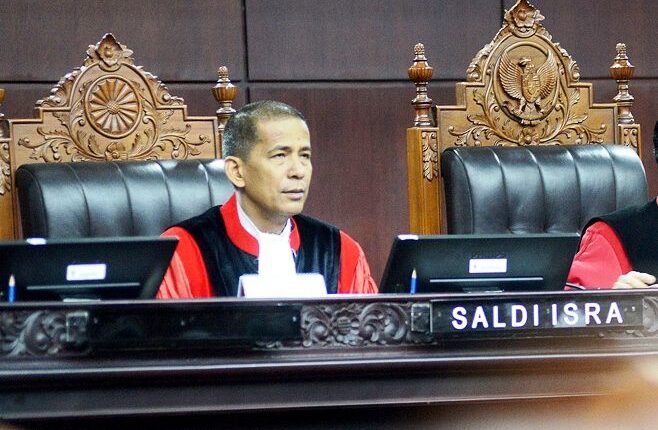The Government Supports the Constitutional Court’s Decision on the Job Creation Act
By: Alvin Sasmita)*
The government supports the decision of the Constitutional Court (MK) on the Job Creation Law which must be revised. It is hoped that the revision of the Job Creation Law will be able to improve the regulation, so that it can provide guarantees of legal certainty and security to investors.
The legislators (President and DPR) receive orders from the Constitutional Court to make revisions within a maximum period of 2 years from the pronouncement of the decision. If within this time limit the legislators do not make improvements, Law Number 11 of 2020 concerning Job Creation will become permanently unconstitutional.
In the decision, it is stated that the formation of the Law on Unconstitutional Job Creation with the 1945 Constitution of the Republic of Indonesia, and does not have legally binding conditionalities as long as it is not interpreted, is not corrected within 2 years from the pronouncement of the decision.
The government and the DPR will respect, comply with, and commit to implementing the Constitutional Court’s (MK) decision on the Copyright Law as well as possible. The Minister of Law and Human Rights (Menkumham) Yasonna H. Laoly said that the follow-up to the Constitutional Court’s decision Number 91/PUU-XVIII/2020 needed to be carried out immediately by the Government.
It is hoped that the revision of the Job Creation Law will be able to improve the regulation, so that it can provide guarantees of legal certainty and security to investors. This legal certainty also refers to the implementation of investments, both domestic and foreign who have committed to investing after the issuance of the Job Creation Law Number 11 of 2020.
Responding to this, Yasonna said, as a democratic country based on law, the government will respect and implement the Constitutional Court’s decision Number 91/PUU-XVIII/2020. The Job Creation Law has been formally reviewed, on November 25, 2021. The Court has ruled against the Ciptaker Law through decision Number 91/PUU-XVIII/2020.
The Job Creation Law was passed in 2020 using the Omnibus Law method and taking into account the content and substance that must be changed in the Job Creation Act and reached 78 laws.
This includes 10 clusters, namely improving the investment ecosystem and business activities, employment, convenience, protection and empowerment of cooperatives and MSMEs, ease of doing business, research and innovation support, land acquisition, economic zones, central government investment and acceleration of national strategic projects, administrative implementation. governance and imposition of sanctions.
On the occasion of reading the verdict, the Chief Justice of the Constitutional Court (MK) Anwar Usman said, the Job Creation Act is contrary to the 1945 Constitution of the Republic of Indonesia and has no legal force to bind conditionally as long as it is not interpreted or corrected within 2 years of the decision being pronounced. .
The Constitutional Court also stated to suspend all strategic and broad-impact actions or policies, and it was also not justified to issue new implementing regulations related to Law Number 11 of 2020 concerning Job Creation.
On a different occasion, Professor of the Faculty of Law, Universitas Gadjah Mada (FH UGM), Prof. Maria SW Sumardjono, said that the Constitutional Court is an institution established under the 1945 Constitution. The Constitutional Court’s decision is final and binding so it must be obeyed as a moral and legal obligation of the government.
The 2-year period given by the Constitutional Court to the government is relatively short, so that the Government needs to make maximum efforts to make improvements or revise the Ciptaker Law.
The government will remain obedient to whatever the Constitutional Court’s decision is and will be able to revise the Ciptaker Law according to the specified deadline. With this improvement, it is hoped that the regulation will be more optimal in summarizing regulations and attracting investors to invest in Indonesia, so that the economy of the people affected by the pandemic can spin again and will add new jobs for the community.
)* The author is a contributor to the Pertiwi Institute
